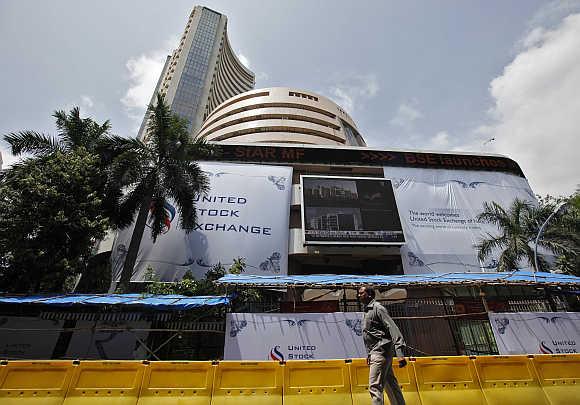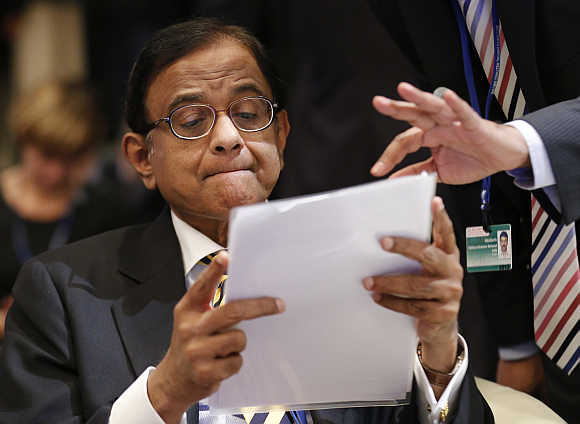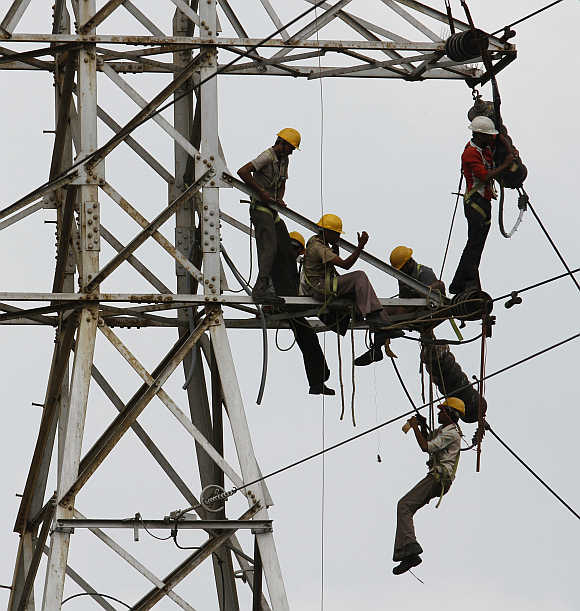
It is not just a mere coincidence that the change in the government's response happened when P Chidambaram took charge, says A K Bhattacharya.
Six months ago, the Sensex hovered at around 17,000. Today it is close to 20,000. In August 2012, fears of a downgrade for India's sovereign credit rating loomed large.
Early this week, Moody's Investors Service retained its "stable" outlook for India. India's macroeconomic fundamentals are still weak, with the government's fiscal deficit for the current year estimated to be over 5.3 per cent of gross domestic product and the current account deficit touching the five per cent of GDP mark.
Yet, it is difficult not to acknowledge a positive mood in the government and take note of the manner in which it has handled what seemed like a hopeless situation.
...

Make no mistake about it. The crisis is far from over. Inflation continues to rule at an uncomfortably high level of around seven per cent if you consider wholesale prices and even higher, at over nine per cent, if you take into account the consumer price index. Investments are yet to pick up and industrial growth continues to remain low.
But what has changed in the last six months is that the government has shown far greater determination to assess the situation, take decisions and attend to problems in a manner that was completely missing earlier.
...

It is not just a mere coincidence that the change in the government's response to the crisis happened at around the same time when Palaniappan Chidambaram took charge of the finance ministry on July 31, 2012.
And the manner in which the new finance minister went about managing the situation is quite instructive. It would not be inappropriate to say that the new finance minister fully understood the importance of signals to improve the prevailing economic environment and take the first step towards achieving an investment recovery.
...

Chidambaram must have also realised that no positive signal can be sent out unless and until the political leadership recognised that there was a crisis that needed to be tackled.
So his first step was to get hold of a report on the state of the economy. The Vijay Kelkar report laid bare the crisis the Indian economy faced.
It was this report that Chidambaram used effectively to convince the political leadership that hard steps needed to be taken - subsidies had to be cut and policies to encourage foreign and domestic investment had to be put in place without any delay.
...

The finance minister also realised that a tepid stock market meant that all the government's calculations to raise resources to bridge its fiscal deficit would go awry. So, the capital market had to be given an assurance that policies that troubled investment should be amended suitably.
Once the stock market improved along with foreign investment policy liberalisation, capital inflows would improve to take care of the widening current account deficit and strengthen the rupee against the dollar. This, in turn, would hopefully have a positive impact on the current account balance.
...

So what did the government do in the last six months? Braving political opposition from all quarters, it went ahead with its decision to allow foreign direct investment in multi-brand retail. Foreign airlines too were permitted to invest in Indian carriers.
These decisions were not expected to result in an immediate flow of foreign investment into the country. All that they achieved was to send out a positive signal to the international investing community that India was open to doing business.
Diesel prices were raised and a cap on supply of subsidised cooking gas cylinders was imposed, once again sending out strong positive signals to the investing community that the government was keen on reducing its fiscal deficit.
...

Similarly, urea prices were raised, railway passenger fares were increased by up to 25 per cent and diesel for bulk users was linked to market prices.
What's more, the finance minister used a report by taxation expert Parthasarathi Shome to postpone the implementation of the controversial general anti-avoidance rules to dispel investors' fears about the way the new taxation provisions could have been used or misused against them.
There is no doubt that the finance minister's initiatives have led to a positive change in the environment.
...

But the danger is to believe that the current approach would be enough to bail the economy out. For the finance minister to function as a minister for investment is all right, but only up to a point.
All that has been done in the last six months is to only fix the distortions that had crept into some of the reforms that had been introduced in the last few years. If the current momentum has to be sustained, there is a need for a fresh bout of fundamental reforms in a host of basic areas, not all of which fall in the domain of the finance ministry.
And for that to happen, the entire government - including its key ministries - needs to focus on reforms in policies.